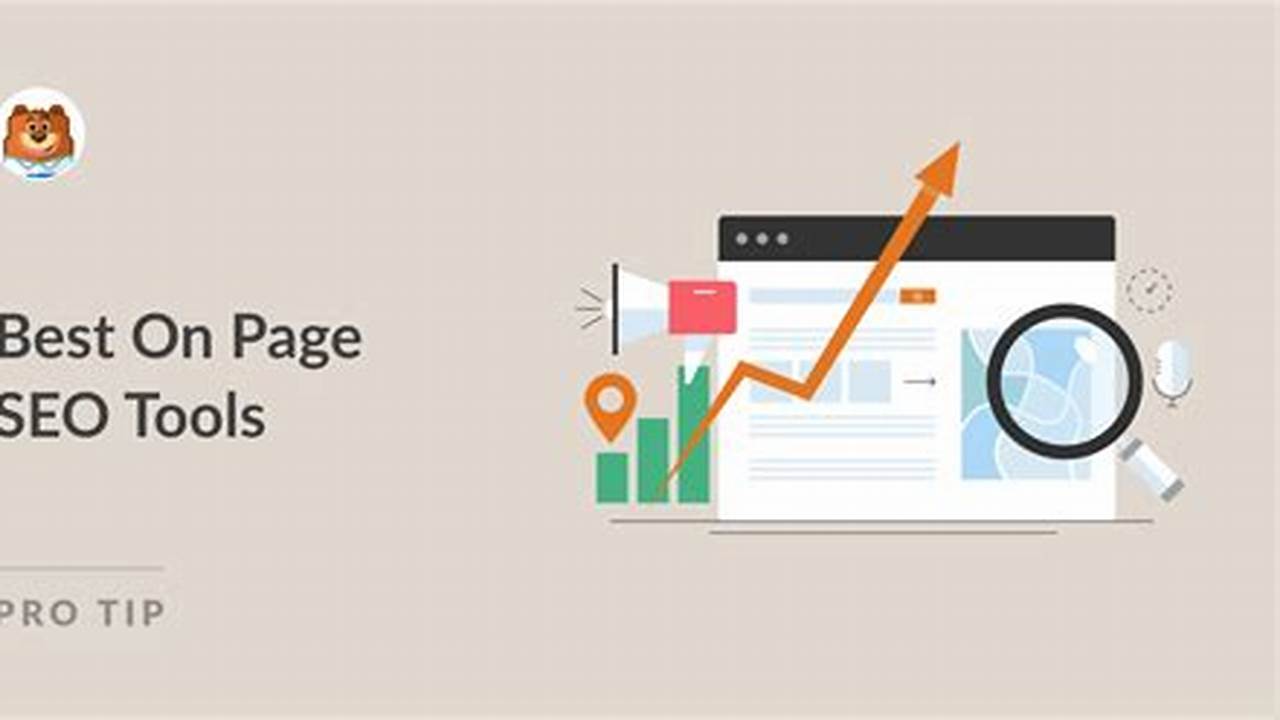Achieving high search engine rankings is a crucial goal for any website seeking online visibility and organic traffic. Utilizing effective on-page optimization strategies and tools is essential for this success. The right tools can streamline the process, providing data-driven insights and actionable recommendations to improve content quality and search engine performance.
Keyword Research
Identifying relevant keywords with high search volume and low competition is the foundation of on-page optimization. Specialized tools can help uncover these opportunities, analyze search trends, and understand user intent.
On-Page Optimization Analysis
Comprehensive website analysis tools evaluate existing on-page elements, identifying areas for improvement in areas such as title tags, meta descriptions, header tags, and content structure.
Content Optimization
Tools designed for content optimization offer guidance on keyword usage, readability, content length, and overall quality. They can help ensure content resonates with both search engines and target audiences.
Technical SEO Audit
Technical SEO tools identify and diagnose technical issues that may hinder search engine crawling and indexing, including broken links, slow loading speeds, and mobile-friendliness problems.
Rank Tracking
Monitoring keyword rankings over time is vital to assess the effectiveness of optimization efforts. Rank tracking tools provide data-driven insights into progress and identify areas needing adjustment.
Competitor Analysis
Understanding competitor strategies is crucial for gaining a competitive edge. Competitor analysis tools reveal competitor keywords, backlink profiles, and content strategies, informing more effective optimization approaches.
Link Building Tools
While primarily an off-page activity, link building is integral to overall SEO success. Specialized tools can help identify link building opportunities and analyze backlink profiles.
Site Audit Tools
Regular site audits identify and resolve technical SEO issues, improving site health and search engine crawlability. These tools provide comprehensive reports and actionable recommendations.
Tips for Effective On-Page Optimization
Focus on User Intent: Create content that satisfies the search query’s underlying purpose, providing valuable and relevant information to users.
Optimize for Mobile Devices: Ensure website responsiveness and mobile-friendliness for optimal user experience across all devices.
Use High-Quality Images and Videos: Engaging visuals enhance content quality and user engagement, contributing positively to search engine rankings.
Build Internal Links: Strategically link related pages within the website to improve site navigation and distribute link equity.
Frequently Asked Questions
How often should I conduct on-page optimization?
On-page optimization is an ongoing process. Regular reviews and updates are essential to maintain optimal performance and adapt to evolving search engine algorithms.
What is the difference between on-page and off-page SEO?
On-page SEO focuses on optimizing elements within a website, while off-page SEO encompasses activities conducted outside the website, such as link building and social media marketing.
How long does it take to see results from on-page SEO?
The timeframe for noticeable results varies depending on various factors, including the competitiveness of the industry and the effectiveness of the implemented strategies. Generally, improvements can be observed within a few months.
Are free SEO tools effective?
While free tools can provide basic functionalities, premium tools often offer more advanced features, comprehensive data, and deeper insights for more effective optimization.
What is the importance of title tags and meta descriptions?
Title tags and meta descriptions are crucial for attracting clicks from search engine results pages (SERPs). They provide concise summaries of the page’s content, influencing click-through rates.
How can I improve my website’s loading speed?
Optimizing images, minimizing HTTP requests, and leveraging browser caching are key strategies for improving website loading speed, a critical factor for both user experience and search engine rankings.
By strategically employing effective on-page optimization techniques and leveraging the insights provided by specialized tools, websites can significantly improve their search engine rankings, attract more organic traffic, and achieve greater online visibility.

Leave a Reply